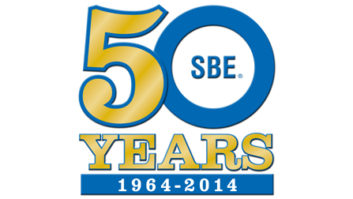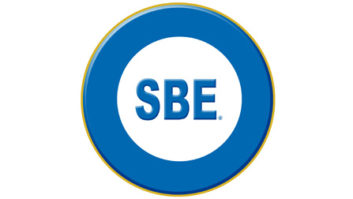
Since its inception in the 1960s, the Society of Broadcast Engineers continued to grow and evolve in its purpose and the services it provided to members and the industry. As the 1980s approached, radio and TV broadcasting technology continued to advance, and the Federal Communications Commission began loosening many rules. This included individual operator licensing.
For many years, radio operators who were in control of the station (taking meter readings and changing power among other duties) were required to hold an FCC Third-Class License with the Broadcast Endorsement.

By December 1978, the FCC eliminated the licensing requirement. While this removed a perceived burden for operators and station owners, it meant there was no longer a standard means for a station to qualify its operators.
The Society of Broadcast Engineers had already established the Program of Certification in 1975, and with the void created by the FCC”s action, the SBE stepped up in October 1980 to find a solution. Work began to develop a test and certification that could substitute for what the Third-Class License evaluated. This new level of certification was called the Certified Broadcast Technologist (now abbreviated CBT).
Then and now, the CBT can be obtained in one of two ways. First, an applicant can take and pass a written exam, like the other levels of SBE certification. A local SBE chapter certification chairman or his designate can administer the 50-question multiple-choice exam. Examinees can also arrange for private proctoring when there is no local chapter or when the exam proctor and examinee have a personal or professional conflict of interest. The second method to obtain the CBT is to hold a valid FCC General Class Radio Telephone license, FCC Amateur Extra Class license or a Canadian Advanced amateur license with either two years of continuous satisfactory service in broadcast engineering or a related technology prior to the date of application, or a total of three out of the last five years of satisfactory service in broadcast engineering or a related technology.

In time, as the required technical proficiency of a radio operator lessened, the CBT came to be aligned as an engineering-level certification. Today it”s part of the Core Four levels of SBE certification. In 1995 when the FCC eliminated all licensed operator requirements at radio stations, the SBE created the Certified Radio Operator (CRO) and Certified Television Operator (CTO) levels of certification. The SBE has revised the �SBE Certification Handbook for Radio Operators,� which is the preparation guide to take the CRO exam. The second edition of the book is now available from the SBE.
Historical source: �The History of the Society of Broadcast Engineers, 1964 – 1981,� by Bradley L. Dick, CPBE.






